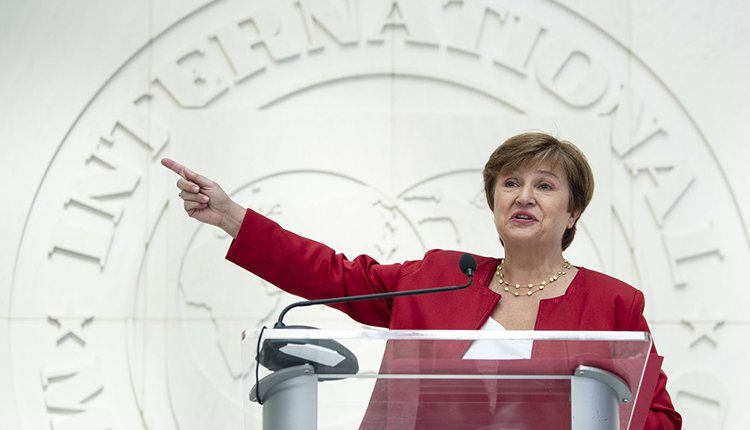IMF chief says the coming two weeks critical for China in coronavirus outbreak
The next two weeks will be crucial in determining the economic impact of the coronavirus outbreak, said International Monetary Fund (IMF) Managing Director Kristalina Georgieva on Friday.
In that time, factories are due to reopen in China, which would give a “better understanding on the resilience of China and on that basis, the spillover for the rest of the world,” Georgieva told CNBC’s Hadley Gamble on the sidelines of the Munich Security Conference.
The IMF is also watching how coronavirus – officially known as COVID-19 – was spreading outside China, Georgieva said, adding that it was “not a major issue for now” but that could change if it spreads into “weak health system countries, for example in Africa.”
China’s National Health Commission reported on Friday an additional 121 deaths nationwide, with 5,090 new confirmed cases of the coronavirus.
The flu-like virus has killed so far a total of 1,380 people in mainland China as of Thursday evening after the health commission said it had removed 108 deaths from the total figure due to a double-count in Hubei province — the epicentre of the global outbreak.
The IMF official cautioned against comparing the new coronavirus with the global outbreak of severe acute respiratory syndrome (SARS) the early 2000s, which the Fund was using as a reference point.
Georgieva explained that not only was this strain of the new virus, COVID-19, different than SARS but Chinese and the global economy had also changed. China only represented 8 percent of the world economy in the early 2000s but now makes up a 19 percent share, she pointed out.
“Therefore, a spillover from China, integrated especially in Asia but also with the rest of the world is much more significant,” she added.
Georgieva said the world economy at that time was “actually in quite good shape,” but was now more “sluggish.”
Physicians have likened the new coronavirus to the outbreak of SARS, which had a short incubation period of two to seven days. During the 2002-2003 period of infection for SARS, there were nearly 8,098 reported cases and 774 deaths, according to the World Health Organization (WHO). It means the virus killed around 1 in 10 infected people.
Georgieva credited China for taking “two very important steps” in paying a lot of attention to the areas affected by the virus outbreak and giving its economy a liquidity boost, along with cutting interest rates and providing stimulus to affected areas to prop up local economies.
Speaking to CNBC’s Sara Eisen on “Closing Bell” alongside Ivanka Trump on Wednesday, Georgieva said the IMF’s baseline scenario for the coronavirus impact on China’s economy was a “V-shaped dramatic decline and very significant recovery.”
Source: CNBC


